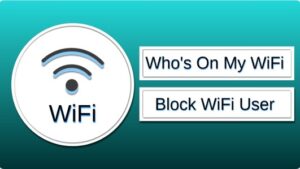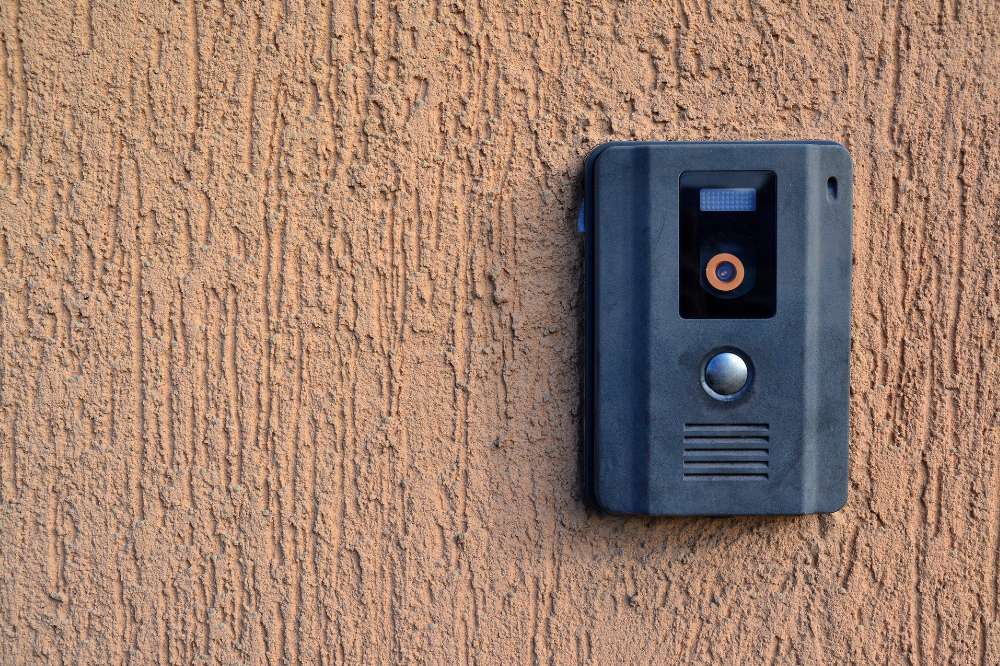Do you have trouble connecting to the Internet in certain areas of your house or office?
A good Wi-Fi extender can extend your Wi-Fi signal to the distant reaches of your home, allowing you to utilize Alexa, your laptop, or your Switch from any room. Some extenders, when properly installed, can even extend that happy Wi-Fi energy into the backyard, allowing you to stream Netflix by the poolside.
YouTube: https://youtu.be/vJk9GO9EU9E
No products found.
Can I connect two Wi-Fi extenders at the same time? Yes, but there are some limitations when connecting one Wi-Fi extender to another, and it might result in a poor performance in the second.
You can also attach extra Wi-Fi extenders, but this will lower your device’s throughput. As a result, you might choose to link each extender to the primary router. To begin, avoid wirelessly connecting the two Wi-Fi extenders. Second, the SSIDs of the two devices must not be identical.
This is why it’s important to know how to connect a Wi-Fi extender to another Wi-Fi extender correctly. To prevent any difficulties and provide Wi-Fi to everyone who requires it, make sure you cover the entire space and maintain optimal signal strength throughout.
Let’s take a look at what a Wi-Fi extender is to get a better understanding of the concept. You’ll also learn how and where to position your Wi-Fi extender to get the best results.
What is A Wi-Fi Extender?
A Wi-Fi extender, also known as a Wi-Fi range extender, extends the range of your Wi-Fi network’s coverage. When your primary router can’t cover your complete house, it can help expand your existing Wi-Fi network.
In short, a Wi-Fi extender serves as a link between the Wi-Fi router and wireless devices that are outside of its range. As a result, it can be an excellent method to boost your Wi-Fi speeds without having to upgrade your Internet subscription.
What is The Maximum Number of Wi-Fi Extenders You Can Use?
Many people also wonder how many Wi-Fi extenders they can use at once, but the answer is entirely dependent on the demands and preferences of the user. For homes with larger areas and rooms that are more spread out, two extenders are recommended to ensure that every corner is reached.
Wi-Fi routers typically have a range of roughly 150 feet. This means that if you put your router in the center of your house, you’ll be able to connect to Wi-Fi from anywhere within 150 feet of it (including upstairs, basement, and across the house or garden).
Different Wi-Fi extenders have different ranges of extension.
If you have a single Internet connection and are using just one router, then only you will be able to use two or more Wi-Fi range extenders. They must be connected to your original Wi-Fi router and will utilize the router’s processing power.
The exact number you’ll need is determined by the Wi-Fi extender’s strength and the distance between the router and the devices you’ll be using. However, it is recommended that you use as few extenders as possible because the signal slows down when it’s extended.
Remember that, while speed is crucial in a Wi-Fi extender, the range is what does most of the job. Therefore, the extension will not be able to provide you with a quicker connection than what your router offers.
What is The Best Place for A Wi-Fi Extender in My Home?

Wi-Fi extenders must be installed within range of both the original Wi-Fi signal flowing from the Wi-Fi router and any devices you want to use with the Wi-Fi, such as your computer or laptop. However, there are still many options for where you can put the Wi-Fi extension.
Many people have tried to set up Wi-Fi extenders in the past without considering what configuration is appropriate for this device. This resulted in concerns about poor signal strength. Here are some frequent mistakes people make when setting up Wi-Fi extenders:
- Keeping the Wi-Fi extenders a long way from the main router is a good idea.
- Not having Ethernet or wired connectivity is a major drawback.
- The Wi-Fi extenders have been set up incorrectly.
Due to the obvious complexities of setting up Wi-Fi extenders, people frequently make these blunders. However, you can get the most out of your Wi-Fi extenders if you have the proper knowledge and apply it correctly. We’ve got you covered with all the information you’ll need to set up your Wi-Fi extenders correctly.
Place the Wi-Fi extenders 150 feet inside and 300 feet outside for the best results. The optimal place for Wi-Fi extenders is in the middle of your network, between your computer and your wireless router. It’s important to note that the Wi-Fi extenders must be within the wireless router’s range. This ensures a strong and consistent signal.
However, if you can’t get it halfway, it’s advisable to put the Wi-Fi extender closer to the device rather than the router. This ensures that your device is always connected to a solid Wi-Fi signal.
If you need to relocate, ensure the Wi-Fi extenders are close to your device while remaining within the wireless router’s range.
When the field of view between the wireless router and the Wi-Fi extenders is clear, the perfect connection may be established. A clear line of sight between the computer and the Wi-Fi extenders is also required.
The connection will be broken if there are any barriers in the way.
Buying Guide: Wi-Fi Extenders
Below are some points that you should keep in mind when buying a network extender.
Traditional or Powerline Adapter
When browsing for Wi-Fi extenders, you’ll come across two types: traditional and powerline adapters. To ensure that you get the best Wi-Fi extender, you must first grasp the differences between the two.
The typical extender connects to your router over Wi-Fi just like any other device. However, powerline adapters include two instead of one adapter.
Features
Desktop or plug-in based, no external antenna, twin antenna, or more, these are some of the physical aspects of the device to consider. Since all you need is an available wall socket, a wall plug-based Wi-Fi range extender takes up the least amount of room. More powerful Wi-Fi extenders are also available for PC users.
It resembles another router in many aspects, with either external or built-in antennae.
Coverage Range
You’re presumably reading this article because you want to establish a reliable connection even at a reasonable distance. We’re well aware that different Wi-Fi extenders on the market offer different coverage regions. And it’s entirely up to you to choose what constitutes an optimal coverage range.
A Wi-Fi extender that covers the entire school will undoubtedly be different from one that provides seamless connectivity throughout your home.
A Wi-Fi extender with a coverage area of 100 meters is more than enough for entry-level or residential use. You’ll need a Wi-Fi extender, on the other hand, to cover a huge area of kilometers or even miles.
Security
Current range extenders offer the WPA2-PSK security protocol, which is one of the greatest levels of protection provided to home users. However, it’s always good to double-check to ensure that your network is safe and secure.
Ports
See whether or not an Ethernet port is available for a wired connection. One or two Ethernet ports are found on most plug-based extenders. Desktop extenders can have up to five Ethernet connections, making them ideal for devices without Wi-Fi, such as an outdated desktop, printer, or IP camera.
Installation and Usability
Sometimes, the non-primary variables set one rival apart from the rest. If installing a Wi-Fi extender gives you pain, it’s not worth it. At the same time, you should be able to easily set the device according to your preferences.
Consider a Wi-Fi extender from a reputable brand to eliminate any concerns you may have.
FAQs
Here are a few other common questions people ask about Wi-Fi extenders.
How Many Wi-Fi Extenders Can You Use in A Single Residence?
Two Wi-Fi extenders can be used simultaneously. Most individuals use Wi-Fi extenders at home to gain faster speed from their routers and extend it to the house’s dead zones.
Important: Adding another extender to your router will help you increase the speed and give you unlimited coverage.
Are Wi-Fi Extenders and Wi-Fi Repeaters The Same?
No, but some manufacturers may prefer one name to another. However, there are important distinctions between Wi-Fi extenders and Wi-Fi repeaters, so make sure you pick the right one.
The major distinction is that repeaters rebroadcast the signal from your router as a separate wireless network while extenders expand the existing network.
Can I Use Three Wi-Fi Extenders at The Same Time?
Wirelessly connecting one extension to another is not recommended. The second extender’s performance is frequently disappointing. As a result, each one should be linked to the primary router, and both extenders should not broadcast the core router’s SSID.
What Happens if You Put A Wi-Fi Extender Too Close to Your Router?
There isn’t enough room to “expand” if the router and extender are too close. So, although the extender will continue to duplicate the Wi-Fi signal, its range will be identical to that of the router’s natural signal.
What is The Range of Wi-Fi Extenders?
A Wi-Fi extender’s precise range is determined by the model. Netgear, for example, sells extenders that span 1,500 to 3,000 square feet. Choose a Wi-Fi extender with similar technologies to ensure it works well with your router.
Is Using A Wi-Fi Extension Going to Slow Down Your Internet?
Use the latest up-to-date Wi-Fi range extender. Since older single-band extenders may have degraded Internet speeds by attempting to provide a signal across longer distances, it’s vital to use a dual-band Wi-Fi extender.
Conclusion
There are numerous Wi-Fi extenders to choose from and purchase. If you’re worried about the new extender’s compatibility with your network, you can always go for Wi-Fi range extenders that are globally compatible with any router model. We hope this article helped you in clearing all your doubts regarding Wi-Fi extenders.



